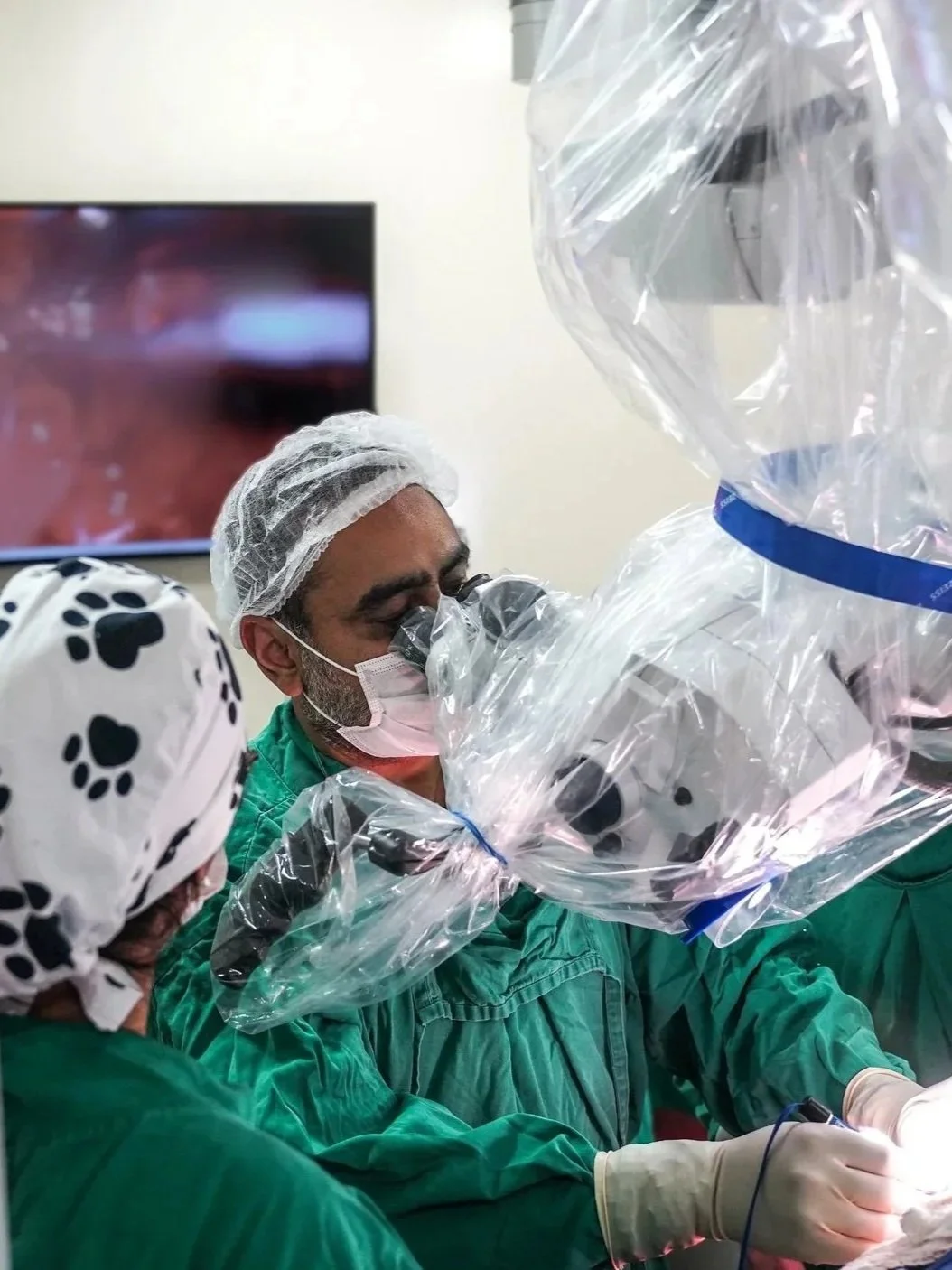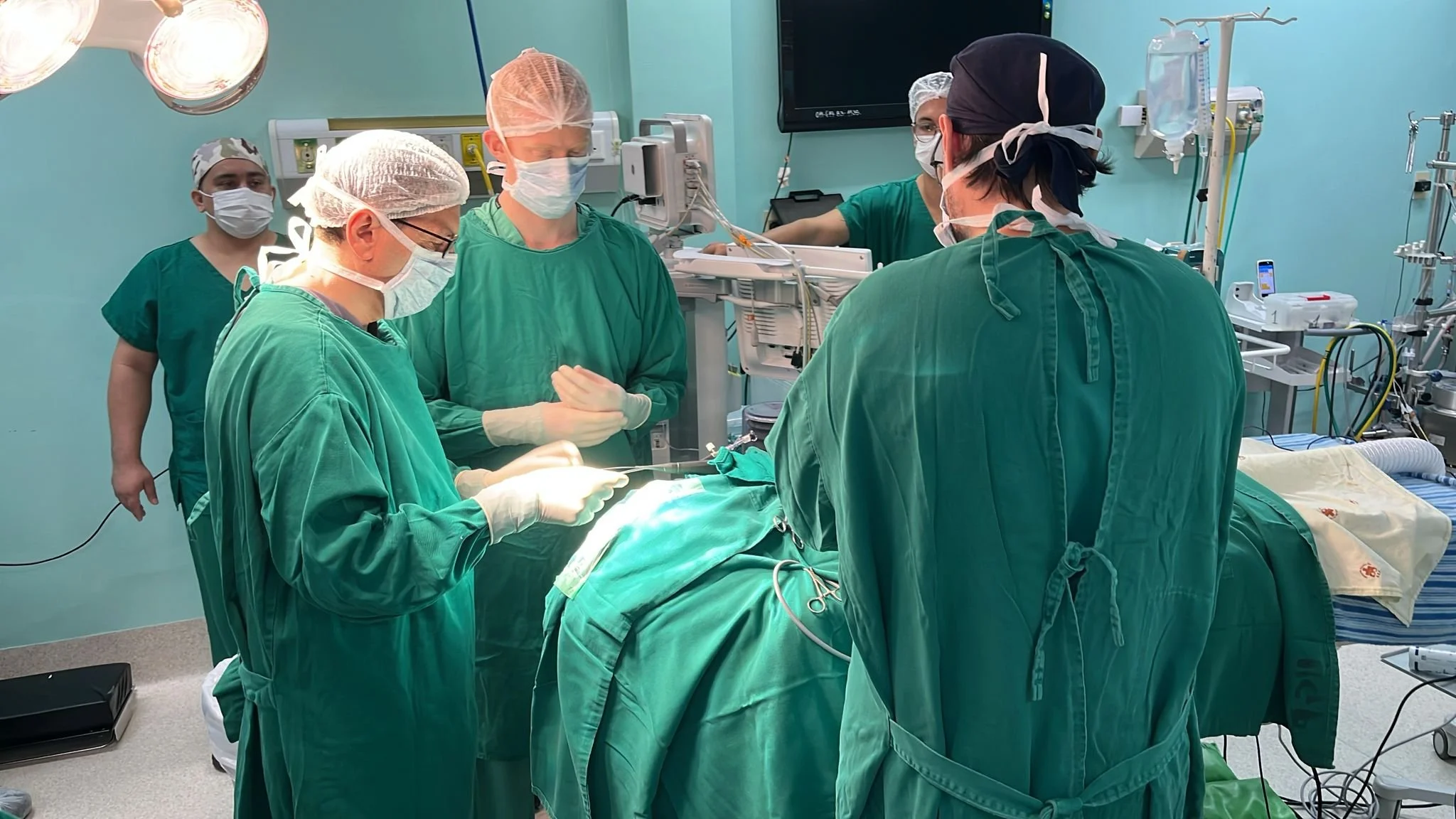WHAT WE DO / PROGRAMS
Neurosurgery & Neurology Institute
Solidarity Bridge’s Neurosurgery and Neurology Institute (NNI) works to expand surgical capacity and improve patient access to advanced neurosurgical and neurological care. Services include procedures in cerebrovascular surgery, pediatric epilepsy, shunt management, neuroendoscopy, pediatric neurosurgery, neurotrauma, and more. The Institute also trains and builds the capacity of local hospital teams in post‑operative care, neuro‑anesthesia, neuro‑rehabilitation, and research. The NNI is a leader in the advancement of global neurosurgery and focuses on convening institutional and individual experts in the field.

Celebrate 20+ Years of Neurosurgery & Neurology with Us on April 25th!
Click here for more info on our annual Gala:
Click here to donate to the NNI:
The Challenge
More than three billion people worldwide are living with neurological conditions. It’s now the leading cause of poor health and disability. An overwhelming 80% of neurological cases that result in death or ill health occur in low-to-moderate income countries, where clinical and professional resources are lacking.
Similarly, the demand for neurosurgery worldwide far outpaces the number of neurosurgeons. This is especially the case in underserved countries in Latin America, where it’s estimated that there is only one neurosurgeon per 200,000 people.
Financial barriers prevent the development of a well-trained surgical workforce, especially in highly specialized fields. Since Paraguay and Bolivia face substantial gaps in access to specialized training, neurosurgical residents and physicians in Bolivia and Paraguay must often travel abroad to receive advanced training—an expensive and inaccessible option for many.
5M
Essential neurosurgical cases that are untreated in low- and middle-income countries per year.
23K
Shortage of neurosurgeons in low- and middle‑income countries
90 hr
Average work week for a neurosurgeon in Latin America
Sources: National Library of Medicine, Science Direct
Our Work
The Neurosurgery & Neurology Institute (NNI) works to alleviate the suffering, death and disability from neurological disorders and injuries that disproportionately impact patients in the countries where we serve. NNI has developed a multi-pronged approach:
Transfer Operative Skills
The “Fellowship at Home” model is a strategy for the transfer of operative skills based on our experiences in promoting specific, advanced surgical skills such as endoscopic transnasal transsphenoidal surgery in Bolivia and cerebrovascular interventions in Paraguay. This model offers, in‑country, context‑specific training, that would otherwise be unavailable, while equipping residents and early‑career surgeons with the skills and tools to better serve their local patient communities.
Develop Global Partnerships
Forging international partnerships that promote bidirectional learning and the global sourcing of innovations. At the direction of our partners in Bolivia and Paraguay, we have identified areas in which the NNI can work to narrow gaps in subspecialty and resident training. These co-learning initiatives are implemented through partner surgeries, subspecialty training, small group case discussions, access to international professional networks, observerships, and virtual and in-person seminars conferring continuing medical education credit.
Medical Equipping
Addressing disparities in access to neurological supplies and equipment through collaborative strategies for sustainable resource mobilization. Learn more about medical equipping.
Measure Long-term Impact
Implementing locally-led research initiatives, including a neurotrauma registry to map the pre-hospital, acute in-hospital, and post-acute care of patients with traumatic brain injuries in collaboration with the Global Health Research Group on Neurotrauma, the World Federation of Neurosurgical Societies (WFNS), and Bolivian and Paraguayan Neurosurgical Societies. The data collected through this registry will support long-term local and global efforts to improve care for traumatic brain injury (TBI) patients. It will also help to guide NNI programming and measure long-term impact.
Invest in Resident Training
The Resident Education Program, collaboratively run by NNI and the University of Wisconsin-Madison’s Department of Neurological Surgery, seeks to enhance the education of neurosurgical trainees in the countries of Bolivia and Paraguay. This program includes bi-monthly virtual lectures, biannual hands-on workshops, and observership opportunities.
NNI Leadership Council
Martin Aliaga, MD
Hospital Obrero de la Caja Nacional and Clínica CEMES, La Paz
Jared Ament, MD, MPH
Cedars-Sinai Marina del Rey Hospital, California
Victor Hugo Cuéllar, MD
Hospital de Niños, Santa Cruz, Bolivia
Robert Dempsey, MD
University of Wisconsin School of Medicine and Public Health
Art DiPatri, MD
UChicago Medicine Comer Children's Hospital
Kurt Florian, JD
Epilepsy Foundation of Greater Chicago (former)
David Gardeazabal, MD
Hospital Santa Barbara, Sucre, Bolivia
Juan-Lorenzo Hinojosa, Ph.D
Solidarity Bridge/Puente de Solidaridad
Bermans Iskandar, MD
University of Wisconsin-Madison
Jose Kuzli, MD
Hospital Nacional de Itauguá, Paraguay
Barbara Lazio, MD
Providence, St. Peter Hospital, Washington
Jeff Loeb, MD
University of Illinois at Chicago
Elio Marín, MD
Instituto de Previsión Social
Ann Rhomberg, MSW
Solidarity Bridge, US
Miguel Saenz, MD
Neuroalivio and Clinica los Olivos, Cochabamba, Bolivia
Patricia Vargas Rojas, M.Ed
Puente de Solidaridad, Bolivia
John Weaver, MD
Penn State Health St. Joseph, Pennsylvania
Academic Publications
View our team’s recent and archival contributions to academic publications.









